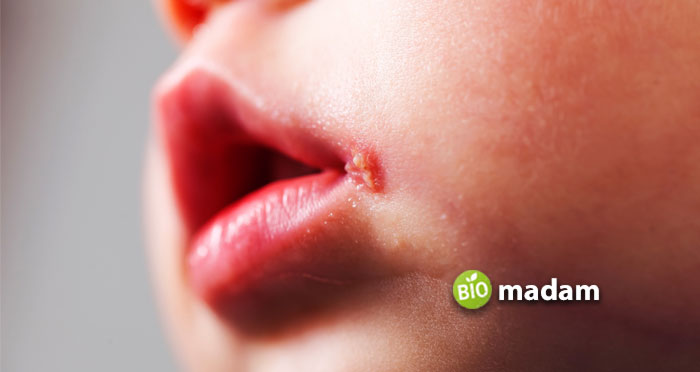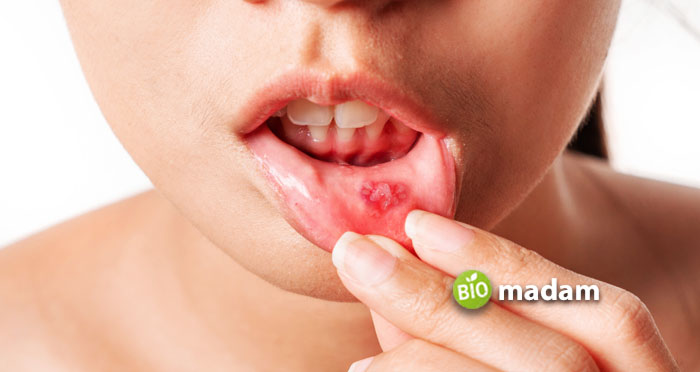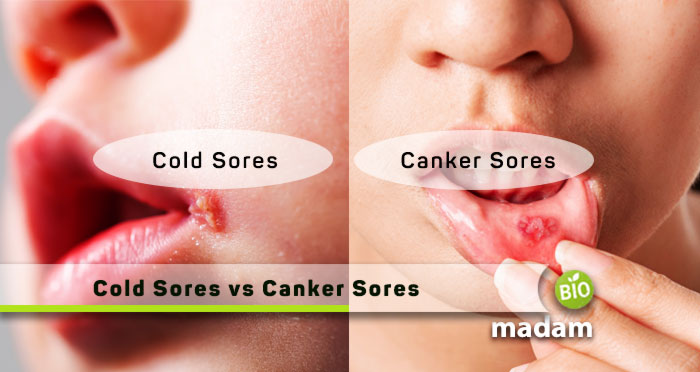Both cold sores and canker sores are conditions that affect the mouth. Although these conditions may appear and feel similar, they have distinct differences in their causes, symptoms, and mode of treatment. Understanding their differences can help patients determine the course of action to take.
Cold Sores
Cold sores are fluid-filled blisters that develop on the lips or inside and around the mouth. They’re caused by infection with the contagious herpes simplex virus (HSV). The HSV is of two types HSV-1 and HSV-2. Although both cause cold sores, HSV-1 is the more prevalent cause.
After contracting the infection, several factors can lead to the development of cold sores. These are stress, fatigue, sunlight exposure, flu, hormonal changes, and mouth injury. To learn more about cold sores, read this blog that provides answers to FAQs on cold sores.
Symptoms Linked to Cold Sores
Some people with cold sores don’t experience any symptoms. However, if initial symptoms occur, they include the following:
- A sore throat
- A burning sensation followed by the formation of painful sores
- Fever
- Swollen lymph nodes
- Pain when swallowing food
- Nausea
- Headaches
These signs and symptoms may last around one to two weeks. However, the cold sores can reappear, but the outbreaks are less severe. Cold sores usually disappear between six to fourteen days. Therefore, consult with your doctor if the sores last longer. Also, see your doctor immediately if your cold sores develop near your eyes.
Cold Sores Treatment
There’s no exact treatment for the herpes simplex virus. Once infected, you’ll always carry the virus. However, cold sores usually disappear within several weeks. Some medications can help relieve the symptoms and accelerate healing. These include,
- Over-the-counter creams and gels containing benzocaine or lidocaine to relieve pain
- Over-the-counter cold sore creams with doconazole to shorten the outbreak
Prescription drugs such as famciclovir, acyclovir, and valacyclovir also help with cold sores. However, these are prescribed if outbreaks are more regular and severe.

Preventing Cold Sores
Since cold sores are contagious, avoiding close contact with people who have the condition can help you avoid the outbreak.
- Avoid sharing personal items, such as towels and utensils, with people with cold sores.
- Avoid cold sore triggers such as stress, anxiety, sunlight exposure, and fatigue.
- If you have frequent and severe outbreaks, your doctor may prescribe antiviral medication to prevent the condition from reappearing.
Maintaining good oral hygiene, such as brushing and flossing daily, can also prevent the spread of HSV.
Canker Sores
Canker sores are painful ulcers that occur in soft tissues of the mouth, such as gums, inner cheeks, and tongue. Unlike cold sores, canker sores aren’t contagious and aren’t caused by a virus. The exact cause of canker sores is still unknown.
However, experts suggest that it’s triggered by factors such as mouth injury, stress, hormone fluctuations, vitamin deficiencies, toothpaste containing sodium lauryl sulfate, smoking, family history of canker sores, and certain foods like chocolates, nuts, or spicy foods.
Symptoms Associated with Canker Sores
Canker sores are usually oval or round with a grey surface surrounded by red inflammation. The sores may occur in groups or singly. Cankers sores symptoms include:
- Painful sores
- Burning or tingling sensations
- Oval or round ulcers with a white or grey top with a red border
In severe cases, one may experience any of the following:
- Physical sluggishness
- Fever
- Swollen lymph nodes
These symptoms can heal without treatment but may reappear in the same spot or a different location.
Canker sores come in three forms, medically referred to as aphthous stomatitis. They include minor, major, and herpetiform aphthous stomatitis.
Minor aphthous stomatitis sores are about one centimeter in diameter and heal within seven days without leaving scarring. Major aphthous stomatitis sores are larger than one centimeter in diameter. They take a couple of weeks to heal and cause scarring. Herpetiform aphthous stomatitis is a cluster of tiny sores that can merge to form larger ones. Like major sores, they also take several weeks to heal and can leave scars.
Canker Sores Treatment
Like cold sores, there’s no exact treatment for canker sores. However, some over-the-counter and prescribed medications can help speed healing and reduce the frequency of canker sores reappearing.
Generally, small canker sores don’t require treatment and heal on their own. However, large and painful canker sores might require the following treatments:
- Over-the-counter creams and gels that are applied directly to the sores, particularly those containing hydrogen peroxide, benzocaine, or fluocinonide.
- Prescribed toothpaste and mouthwashes that contain dexamethasone to ease pain and swelling.
- Oral prescriptions like steroid medications. Such medication helps when canker sores don’t respond to other medicines.

While these medications are used to treat canker sores, it’s advisable to seek professional treatment than purchasing the medicine without a prescription. A doctor will study the sores and prescribe the best drugs based on how severe they are.
Preventing Canker Sores
- Avoid foods such as citrus fruits, nuts, and spicy foods as they trigger canker sores.
- Protect your mouth from injuries as they increase the risk of developing the condition.
- Practice stress-reducing activities since stress weakens your immune system, thus increasing the risk of canker sores.
Using mouthwashes with corticosteroids also helps reduce the frequency of canker sores.
The Takeaway
Cold and canker sores are common and may feel and look similar. However, their causes, location, symptoms, treatments, and prevention measures differ. Therefore, it’s essential to understand the difference to receive the proper treatment. If you experience severe sores in and around your mouth, consult a healthcare provider for a precise diagnosis.

Hi, they call me Jenna, and I am also known for achieving a gold medal during my Ph.D. in science life. I always had a dream to educate people through my utmost writing hobby. So, I chose this blogging path, and Biomadam gave me this opportunity to present for them. I now stand to entertain you. Continue reading my articles & discuss if you’ve any confusion through the comment section below.

